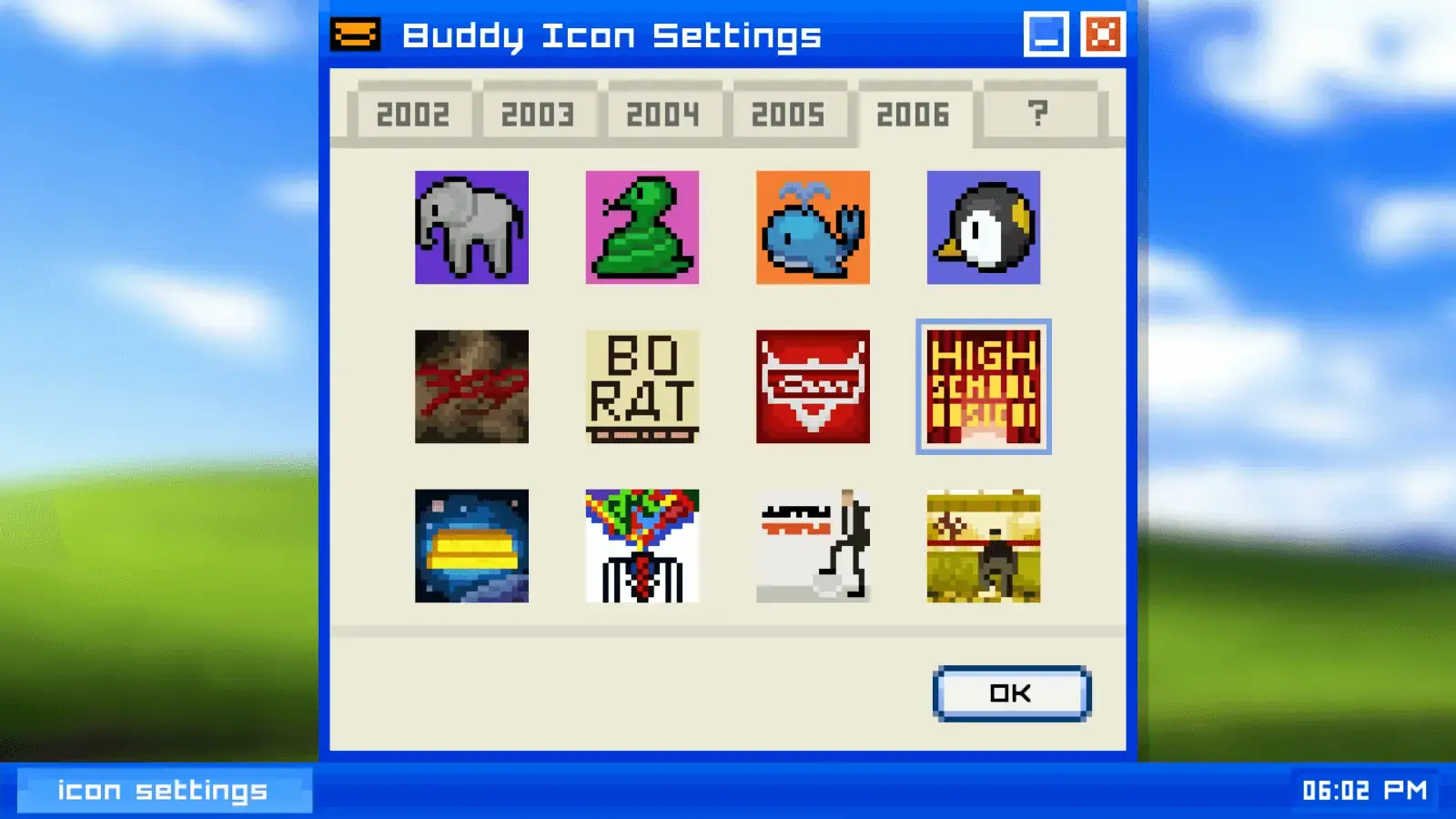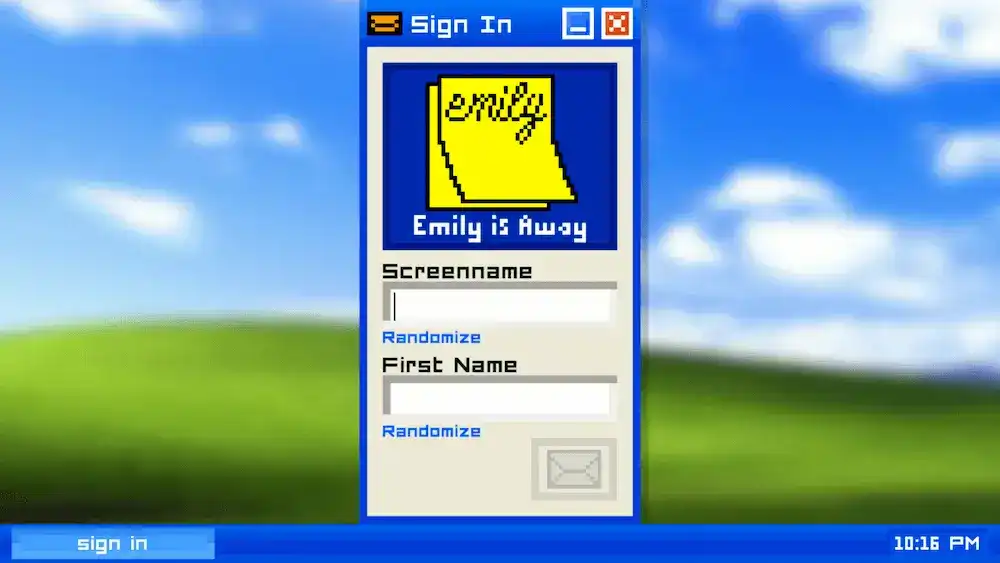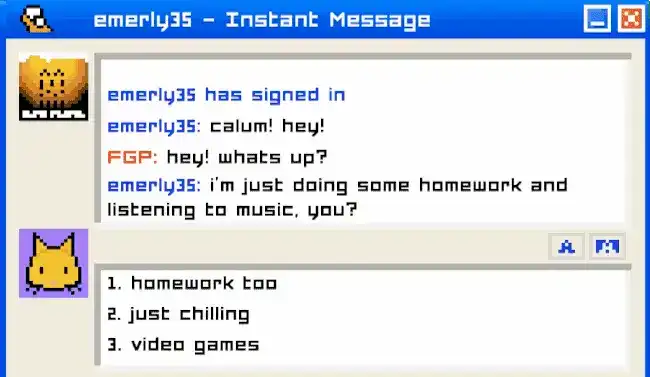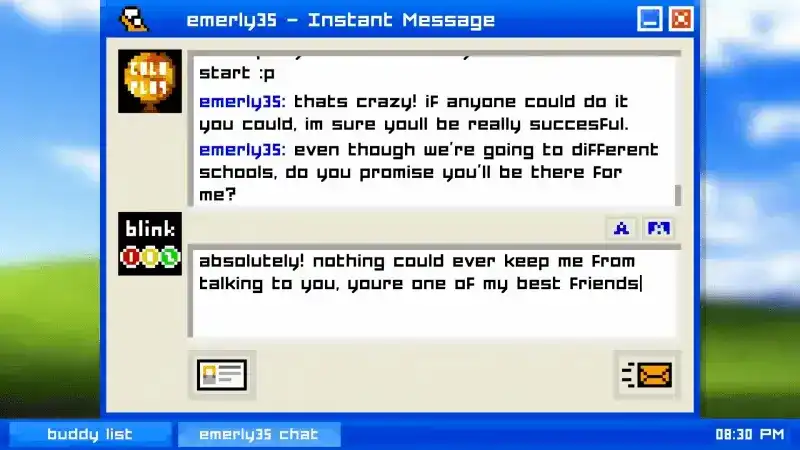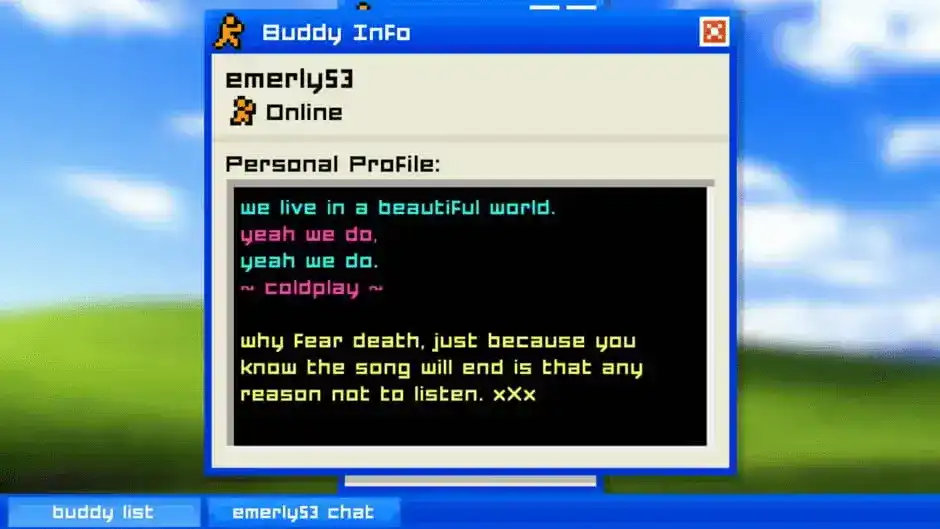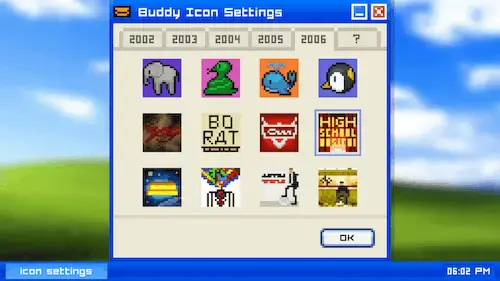Emily is Away is one of those games that reminds me of simpler times. The welcoming blue Windows login screen, the AIM messenger app, and all the sounds that accompanied them pulled me back to a time where I could afford to be more carefree.
Growing up with the Internet is an interesting childhood to look back on. I learned how to research the old-fashioned way with books and encyclopedias, while computers were set up in elementary schools to teach us how to surf the net. A lot can happen in 23 years, it seems, and it’s nostalgic to be able to look back and say, “Hey, I remember when things were like this!”
Maybe the characters in this story will look back, too, one day and remember what it was like to be trivial in a moment of time.
'The 2000s' Has Logged In!
Emily is Away is in a weird spot for me emotionally in that there's both nostalgia and current relevance. On one hand, I remember the awkward conversations on the messenger program AIM, the cute profile pictures that changed like the weather, and the clickety sounds of old keyboards and fat laptops. On the other hand, the characters experience what college is like, a common stage in many people’s lives, that I’m currently living through.
The story is set over the course of five years, with the main character and Emily speaking what seems like once every year as they fly through college. It's not so much a coming-of-age story as it is a cold splash of reality thrown into my face — the conversations unravel a story about the two main characters in a way that doesn't waste any time. I felt a little bit of those old days seep into my gameplay.
Press Enter to Send
Like the sound of doors opening and closing as names on the buddy list blink online or offline, inevitably people will also enter and exit out of each other's lives. Emily is Away is one such story of that kind of hard-to-swallow lesson, where friends can have a falling out despite promises of a different future.
I remember playing this the first time and choosing all the options that point to deterring from the fate that would separate the main character and Emily. Now, on the second playthrough, I’ve learned a lot about how I’ve grown as I chose to listen to Emily even as I anticipated the same outcome.
I thought the dialogue was so realistic that I found myself relating to both the main character and Emily (and not just because it's my name). The part that hit home hardest for me is during the last chapter, which I think most people can also relate to. As the main character and Emily finish up college and are about to graduate, you get to choose what the main character says.
The only difference in this part of the story is that instead of saying what they really wanted, the main character backspaces to ask instead about things that don’t actually matter. Seeing it happen was powerful, and was definitely a reflection of my youth. It also tinged the entire story with a kind of melancholic feeling that shows reality hurts in ways that are often unexpected — especially when you did everything to prevent it from happening in the first place.
Emily Is Offline
While short, I enjoyed the trip of nostalgia. I wish the game was longer with more chat logs to give a bit more realism to the story, but I can forgive its brevity for what it made me feel. Another small thing that would have improved the experience is if the player had the ability to fast-forward their replies. It would make replays less tedious and would probably be less frustrating for the player once they find out there is no "happy" ending. However, despite the ending, I think the story is well-written and ended realistically.
Since Emily is Away Too has been made, I'm excited to see what's been improved on and what more nostalgia awaits me there.
